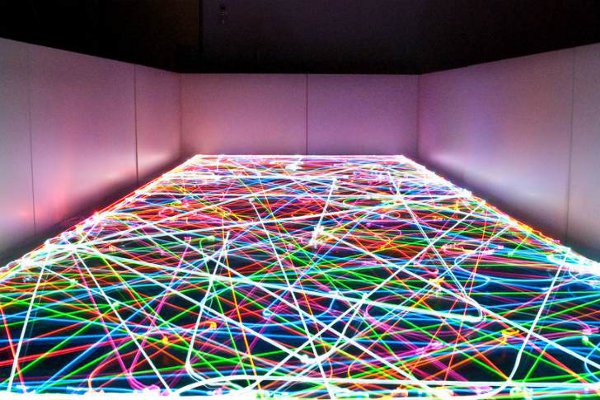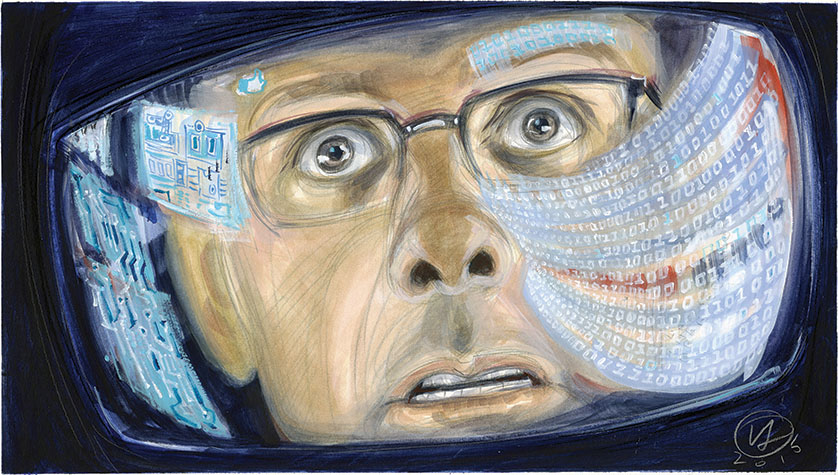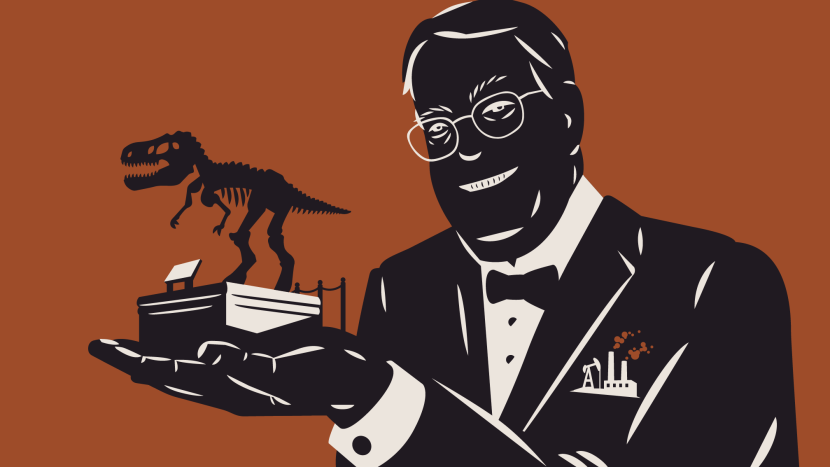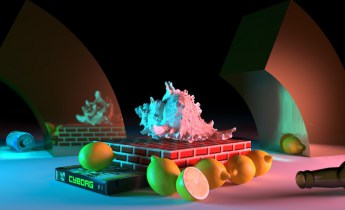Critical Links: March 27th, 2015
 "New York’s network infrastructure is a lot like the city itself: messy, sprawling, and at times near-incomprehensible. However, the city’s tendency toward flux is a strange blessing for the infrastructure sightseer: markings and remnants of the network are almost everywhere, once you know how to look for them."
"New York’s network infrastructure is a lot like the city itself: messy, sprawling, and at times near-incomprehensible. However, the city’s tendency toward flux is a strange blessing for the infrastructure sightseer: markings and remnants of the network are almost everywhere, once you know how to look for them."
Ingrid Burrington in Seeing Networks
 "Chemists report today that a pair of simple compounds, which would have been abundant on early Earth, can give rise to a network of simple reactions that produce the three major classes of biomolecules—nucleic acids, amino acids, and lipids—needed for the earliest form of life to get its start. Although the new work does not prove that this is how life started, it may eventually help explain one of the deepest mysteries in modern science."
"Chemists report today that a pair of simple compounds, which would have been abundant on early Earth, can give rise to a network of simple reactions that produce the three major classes of biomolecules—nucleic acids, amino acids, and lipids—needed for the earliest form of life to get its start. Although the new work does not prove that this is how life started, it may eventually help explain one of the deepest mysteries in modern science."
Robert F. Service in Researchers May Have Solved Origin-of-life Conundrum
 "In fact, the idea of faking your own location through attaching your GPS anklet to a Roomba, for example, and letting it wander around the house all day is perversely brilliant, like something from a 21st-century Alfred Hitchcock film. Of course, it wouldn't take very long to deduce from the algorithmically perfect straight lines and zig-zag edge geometry of your Roomba's movements that it is not, in fact, a real person walking around in there—or perhaps it would just look like you've taken up some bizarre new form of home exercise."
"In fact, the idea of faking your own location through attaching your GPS anklet to a Roomba, for example, and letting it wander around the house all day is perversely brilliant, like something from a 21st-century Alfred Hitchcock film. Of course, it wouldn't take very long to deduce from the algorithmically perfect straight lines and zig-zag edge geometry of your Roomba's movements that it is not, in fact, a real person walking around in there—or perhaps it would just look like you've taken up some bizarre new form of home exercise."
Geoff Manaugh in Ghosts of Home Geography
 "Most contemporary American critics of technology—from Jaron Lanier to Andrew Keen to Sherry Turkle—fall into the cultural-romantic or conservative camps. They bemoan the arrogant thrust of technological thinking as it clashes with human traditions and fret over what an ethos of permanent disruption means for the configuration of the liberal self or the survival of its landmark institutions, from universities to newspapers."
"Most contemporary American critics of technology—from Jaron Lanier to Andrew Keen to Sherry Turkle—fall into the cultural-romantic or conservative camps. They bemoan the arrogant thrust of technological thinking as it clashes with human traditions and fret over what an ethos of permanent disruption means for the configuration of the liberal self or the survival of its landmark institutions, from universities to newspapers."
Evgeny Morozov in The Taming of Tech Criticism
 “Museums are grounded in the tradition of public service. They are organized as public trusts, holding their collections and information as a benefit for those they were established to serve…Museums and those responsible for them must do more than avoid legal liability, they must take affirmative steps to maintain their integrity so as to warrant public confidence. They must act not only legally but also ethically.”
“Museums are grounded in the tradition of public service. They are organized as public trusts, holding their collections and information as a benefit for those they were established to serve…Museums and those responsible for them must do more than avoid legal liability, they must take affirmative steps to maintain their integrity so as to warrant public confidence. They must act not only legally but also ethically.”
In An Open Letter to Museums from Members of the Scientific Community
 "Because appropriation brings things together it must grapple with a fundamental question. Whatever is brought together must form a relation. These various things must sit side-by-side with each other. Hence one might speak of any grouping of objects in terms of their “parallel” nature, that is to say, in terms of the way in which they maintain their multiple identities in parallel."
"Because appropriation brings things together it must grapple with a fundamental question. Whatever is brought together must form a relation. These various things must sit side-by-side with each other. Hence one might speak of any grouping of objects in terms of their “parallel” nature, that is to say, in terms of the way in which they maintain their multiple identities in parallel."
Alexander Galloway in Something About the Digital